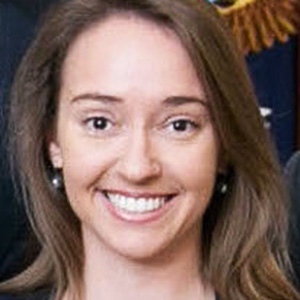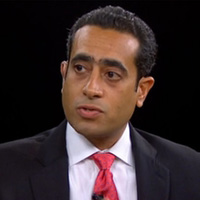Novel Threats: National Security and the Coronavirus Pandemic
Alex Potcovaru
2020-10-28T11:41:00-04:00
Novel Threats: National Security and the Coronavirus Pandemic is a series of conversations featuring insights by the fellows and affiliates and leadership of the Reiss Center on Law and Security at NYU School of Law. Our experts serve as guides to a moment in which a massive public health threat, anticipated by so many for so long, nonetheless has created a challenge of unprecedented proportions and impact on both our domestic and international policy.
Throughout this series we will explore the impact of the pandemic on national security law and policy: from the design of our national security bureaucracy to the future of international conflict and cooperation to the role of cybersecurity and tech, and more. We hope that these insights offer resources for readers as they consider the wide-ranging implications of this new environment.
Have a question you’d like to see featured here? Drop us a line at RCLS.law@nyu.edu
Latest Posts
Kate Brannen on Coronavirus, Misinformation and Covering National Security
October 28, 2020
“The pandemic has raised the stakes of misinformation, and in the United States, we have seen it coming from truly surprising institutions, making a journalist’s job more fraught with opportunities to elevate dangerous ideas.”
>Read More > Full Kate Brannen
Randy Milch on Coronavirus, Contact Tracing and the Role of the Private Sector
October 14, 2020
“The trade-offs between an executive function like contact tracing (or national security or crime control) and privacy normally are worked out in a lengthy and iterative process…But while state governments are deciding whether to use a smartphone-based contact tracing app, the underlying balance between health surveillance and privacy was effectively made by Apple and Google.”
>Read More > Full Randy Milch
Lisa Monaco on Coronavirus and Looking Beyond the Horizon
September 30, 2020
“COVID-19 and pandemic disease is the quintessential transnational threat. Our challenge then, is to reorient how we think about ‘homeland security’ in general, and the threat of emerging infectious disease in particular.”
Read More > Full Lisa Monaco
Richard Pildes on Coronavirus and Protecting American Democracy This Fall
September 16, 2020
“The more people who vote in person, the lower the risk that we will end up heading down one of the many dangerous paths we know are out there. The health of American democracy could depend on it.”
Read More > Full Richard Pildes
Viola Gienger on Coronavirus and Faultlines in Europe and Russia
September 9, 2020
“The region’s citizens have responded to the pandemic in part based on their unfortunate familiarity with major crises in their lifetimes: the volatile transitions to democracy and then, in some cases, backsliding; the violent dissolution of the former Yugoslavia and the post-war entrenchment of wartime parties or leaders; and the resulting debilitating stagnation.”
Read More > Full Viola Gienger
Tess Bridgeman on Coronavirus and the Role of Law in an Emergency
August 20, 2020
“[L]eaders in robust democracies can and do use emergency authorities in legitimate ways that are necessary to safeguard their populations from threats…And when extraordinary measures do need to be taken, there are guardrails on their use that help to ensure they aren’t abused. In this sense, the law isn’t just a sword, it can also be a shield.”
Read More > Full Tess Bridgeman coronavirus post
Lindsay Rodman on Coronavirus, the U.S. Military and Leadership
August 12, 2020
“Pandemic preparedness and response should absolutely be a strategic point of cooperation among allies and partners, but it is decidedly not the type of mission where the military should be in the lead.”
Read More > Full Lindsay Rodman coronavirus post
Stephen Pomper on Coronavirus, Conflict Prevention and Multilateral Institutions
August 05, 2020
“Even if the world hasn’t caught fire in all the ways that it might have, there is hardly reason to be sanguine. The disease could take off in places it hasn’t. Burdens that governments and populations have managed thus far to bear could become unbearable. And would-be provocateurs could begin to test the limits of what they can get away with.”
Read More > Full Stephen Pomper coronavirus post
Rebecca Ingber on Coronavirus, Congress and the 'Deep State'
July 29, 2020
“Certainly, any solution to this crisis
requires the expertise and institutional work of the entrenched bureaucracy, but it alone cannot save us from a failure of leadership, or a leader determined to fail us.”
Read More > Full Rebecca Ingber coronavirus post
Wally Adeyemo on Coronavirus, the Global Economy and Geopolitics
July 22, 2020
“In many ways, the coronavirus is simply accelerating well-entrenched trends like the growth of automation and e-commerce…Designing our economic policy response to the coronavirus in a way that takes account of these long-term trends is the only way we can meaningfully address inequality as well as promote our competitiveness.”
Read More > Full Wally Adeyemo coronavirus post
Stephen Holmes on Coronavirus, Democracy and Lessons from History
July 15, 2020
“This savage plague has revealed the limited power of every political system, bar none. But populists…have outdone all others in transforming a scourge into a society-upending catastrophe from which it will take years, if not decades, to recover.”
Read More > Full Stephen Holmes coronavirus post
Michael Wahid Hanna on Coronavirus and the
Middle East
July 8, 2020
“[T]he standard approaches to information and transparency have come up against a crisis that cannot simply be manipulated through the usual means of lying and propaganda. The spread of the virus and the severity of the disease mean that sickness and death are a societal phenomenon that are readily evident through the lived experience of citizens.”
Read More > Full Michael Hanna coronavirus post
Judi Germano on Coronavirus, Cybersecurity and Misinformation
July 1, 2020
“A global crisis heightens the critical need to provide the public with accurate information to reduce risks and protect health and safety. Yet amidst the COVID-19 pandemic, we currently face an ‘infodemic’ of misinformation (inadvertently spread) and disinformation (deliberately spread).”
Read More > Full Judi Germano coronavirus post
Nicholas Rasmussen on Coronavirus, the National Security Bureaucracy and How to Organize for a Crisis
June 24, 2020
“[I]t’s clear in retrospect that more aggressive decisions, taken by our senior leaders at an earlier stage with the aim of mobilizing a whole-of-government response, would likely have saved thousands of lives and opened the door to more rapid recovery.”
Read More > Full Nicholas Rasmussen coronavirus post
















